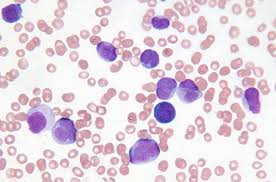-
Veronique Desaulniers wrote a new post 10 years, 1 months ago
-
Veronique Desaulniers wrote a new post 10 years, 1 months ago
It happens. When you’re diagnosed with breast cancer, emotions jump into the driver’s seat of your mind and speed down the highway of possible outcomes, sometimes making a few unplanned pit stops at what you wish […]
-
Veronique Desaulniers wrote a new post 10 years, 2 months ago
 It may come as a surprise to many to learn that there could be a connection between the consumption of pork and the incidence of breast cancer. The pork industry has spent millions of dollars to convince us that <a href="http://www.porkbeinspired.com/about-the-national-pork-board/the-other-white-meat-brand/" […]
It may come as a surprise to many to learn that there could be a connection between the consumption of pork and the incidence of breast cancer. The pork industry has spent millions of dollars to convince us that <a href="http://www.porkbeinspired.com/about-the-national-pork-board/the-other-white-meat-brand/" […] -
Veronique Desaulniers wrote a new post 10 years, 2 months ago
-
Veronique Desaulniers wrote a new post 10 years, 2 months ago
 The average American consumes approximately 10 pounds of chocolate each year. That’s nearly 105 full-sized candy bars. Many are indulging in sugar-laden chocolate for more than an occasional treat. But when you […]
The average American consumes approximately 10 pounds of chocolate each year. That’s nearly 105 full-sized candy bars. Many are indulging in sugar-laden chocolate for more than an occasional treat. But when you […] -
Veronique Desaulniers wrote a new post 10 years, 2 months ago
-
Veronique Desaulniers wrote a new post 10 years, 3 months ago
-
Veronique Desaulniers wrote a new post 10 years, 3 months ago
-
Veronique Desaulniers wrote a new post 10 years, 4 months ago
-
Veronique Desaulniers wrote a new post 10 years, 4 months ago
-
Veronique Desaulniers wrote a new post 10 years, 4 months ago
-
Veronique Desaulniers wrote a new post 10 years, 5 months ago
From a very young age, I remember my mother complaining of being awake most of the night and having difficulty sleeping. As I reached adulthood, I slept like a baby and never thought that the “sleepless curse” would befall me… until I became premenopausal.
Over the years, I juggled various supplements, trying to figure out how to regain that deep restful, refreshing, relaxing 7 – 8 hour sleep pattern. Although I adhere very closely to the principles I outline in The 7 Essentials, eat a very clean diet, exercise regularly, take my necessary supplements, there was still an imbalance in my brain chemistry. There were nights when I slept moderately well, but there were other nights when I barely would get 3-4 hours of sleep.
Several months ago, I ran a Neurotransmitter Sleep Profile and was very impressed with the results. It was spot on with my symptoms and complaints. I followed the recommendations and have slept like a baby ever since. It was life changing for me, which is why I am sharing this with you. Sleepless nights and difficulty sleeping is one of the most common complaints that I hear from women.
According to Dr. Stan Burzynski, “Stress and lack of sleep can silence cancer-protective genes.”
Analyzing your brain neurotransmitters though a simple urine test done in the privacy of your home may help you resolve some of the following issues:
– Adrenal Dysfunction: fatigue, insomnia
– Mood Disorders: depression, anxiety
– Loss of Mental Focus: ADD, ADHD, cognitive fog
– Addiction and Dependency
– Hormonal Imbalances: Estrogen Dominance
– Loss of Appetite Control: obesity and insulin resistance
Neurotransmitters are chemical messengers that regulate many physical and emotional processes including movement, stress response, cognition, emotions, energy, cravings, pain and more. Functioning primarily in the central nervous system (CNS), neurotransmitters facilitate communication between the brain and the body’s glands, organs and muscles.
Here are the main 6 Brain Hormones that are analyzed in the Basic Sleep Profile:
SEROTONIN
This is a key neurotransmitter that is involved in the regulation of sleep, appetite and aggression. Serotonin imbalance is a common contributor to mood problems and depression.
GABA
This is the major inhibitory neurotransmitter found in the Nerve System. High levels of GABA may be a result of excitatory overload that may contribute to sluggish energy, feelings of sedation, and foggy thinking.
DOPAMINE
This brain hormone is largely responsible for regulating the pleasure/ reward pathway, memory and motor control. Memory issues are common with both elevations and depressions in dopamine levels.
NOREPINEPHRINE
Norepinephrine is also called noradrenaline, and it is an excitatory neurotransmitter produced in the Nerve System, as well as in the adrenal gland. High levels of norepinephrine are often linked to anxiety, stress, elevated blood pressure, and hyperactivity, whereas low levels are associated with lack of energy, focus, and motivation.
EPINEPHRINE
Often better known as adrenaline, epinephrine is heavily involved in a stress response. Elevated levels of epinephrine are often associated with hyperactivity, ADHD, anxiety, sleep issues, and low adrenal function.
GLUTAMATE
This is an excitatory neurotransmitter and is considered to be the most abundant neurotransmitter in the nervous system. Elevated glutamate levels are commonly associated with panic attacks, anxiety, difficulty concentrating, OCD and depression, whereas low glutamate levels may result in agitation, memory loss, sleeplessness, low energy levels and depression.
If you want to take this test one step further, the optimal approach is to test your sex hormones in relationship to your brain hormones. Changes in sex hormones and adrenal hormones can lead to neurotransmitter imbalances, while conversely neurotransmitter imbalances can affect hormone production and function. Testing both neurotransmitters and hormones provides a comprehensive view of the body’s functional nerve-hormonal status, and brings to light additional factors that may be contributing to your symptoms. -
Veronique Desaulniers wrote a new post 10 years, 5 months ago
-
Veronique Desaulniers wrote a new post 10 years, 5 months ago
-
Veronique Desaulniers wrote a new post 10 years, 6 months ago
On Saturday October 18th, 2014 I had the pleasure of speaking at the Cancer Killer Conference in Kennesaw, GA. I was accompanied on the stage with David Jokers, CEO and founder of Exodus Health Center. There is a […]
-
Veronique Desaulniers changed their profile picture 10 years, 6 months ago
-
Veronique Desaulniers changed their profile picture 10 years, 6 months ago
-
Veronique Desaulniers wrote a new post 10 years, 6 months ago
-
Veronique Desaulniers wrote a new post 10 years, 6 months ago
I cannot tell you how many women I speak to that have regrets about going the traditional chemo-radiation route. I have heard tales of finger nails turning black and blue and eventually falling off, mouth and esophageal ulcers, rotting teeth, heart damage, nerve damage, diabetes, hair loss, blistering skin from radiation burns, weight loss, weight gain…. and the list goes on. The good news is that your body can repair and heal from these toxic therapies, given specific nutrients.
Let’s start with the side effects of Radiation.
I witnessed my own mother receiving radiation burns as a result of radiation therapy for Breast Cancer. Her breast blistered, became red hot and was as hard as a brick. It remained that way for years.
Medical radiation might reduce the tumor load initially, but it is doing nothing to address the circulating stem cells which are responsible for re-seeding and fueling the growth of the tumor. In fact, increased radiation exposure has been shown to increase your Breast Cancer risk.
Clastogenic factors (CFs) were first described in the blood of persons irradiated accidentally or for therapeutic reasons. These factors are defined as mutagenic, since they break up chromosomes and often lead to the development of cancerous tissues.
are defined as mutagenic, since they break up chromosomes and often lead to the development of cancerous tissues.
But don’t despair and think that once you are radiated there is no hope for your body to repair itself. My friend from “down under”, Jillian Exton, has compiled a list of supplements based on clinical research that can help you overcome the side-effects of radiation. Her book, “What’s Your Plan”, is a must for anyone who has been through the traditional toxic therapies.
Jillian wrote this book after experiencing surgery, chemotherapy and radiation. She was searching for natural ways to manage the side effects of her treatment. Discussions with her medical team on possible supplementation with various nutrients always resulted in the need for clinical studies and evidence, in order to make informed decisions. And so the seed for the book was planted.
Here are a few of the recommendations in her book on managing side effects of radiation:Astragalus is an herb used in traditional Chinese Medicine to support the Immune System. It has anti-tumor effects and decreases organ damage from radiation. It increased survival in mice treated with radiation.
Bioflavonoids such as genistein and soy isoflavones have been shown to decrease the side effects of radiation, increase cancer cell death by reducing the caner cells’ ability to self-repair. These bioflavonoids also have anti-tumor properties.
 Curcumin is one of my favorite anti-inflammatory herbs and has strong anti-tumor properties. It has a very protective effect on radiation.
Curcumin is one of my favorite anti-inflammatory herbs and has strong anti-tumor properties. It has a very protective effect on radiation.
Omega 3 Fatty Acids are essential for decreasing inflammation and have well established anti-cancer benefits. A German studyconducted in 2011 demonstrated the protective effect on healthy cells but increased the effectiveness of the radiation on cancer cells.
Ginko Biloba Extract is an herbal that is high in anti-oxidants. Anti-oxidants in this extract decreased the blood markers of radiation exposure in people that were exposed to ionizing radiation because of their occupation.I will add one of my favorite ways to overcome the effects of radiation…miso. I don’t have a specific study on this, as I learned this years ago when I was studying and applying the Macrobiotic Diet by Mishio Kushi. After the horrific events of Hiroshima due to the nuclear bombing, radiation injuries were rampant. However, doctors noticed that the people that still had access to their daily cup of miso (fermented soy bean paste) had fewer radiation side effects compared to those without the miso soup.
Apparently the bacteria in the miso would bind the radiation and expel it form the body at a more rapid pace. More recent studies have shown that miso does have a protective effect from radiation.
If you are on a healing journey or you know someone that is suffering because of conventional cancer treatments, please share this information with them. Applying the principles in Jillian’s book may make their experience less traumatic and a little more pleasant. The next post will be about survival tips for chemotherapy. -
Veronique Desaulniers wrote a new post 10 years, 6 months ago
- Load More




















